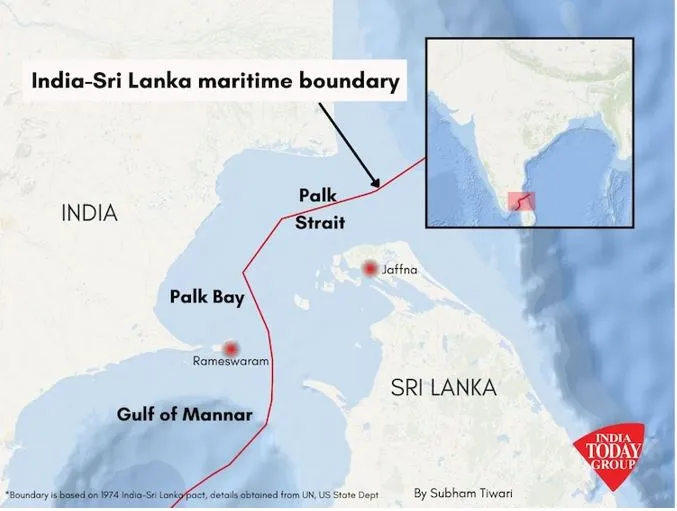

30th October 2024 (10 Topics)
Context
India has reiterated its concerns over the increasing detention of Indian fishermen by Sri Lankan authorities at the recent India-Sri Lanka Joint Working Group (JWG) on Fisheries meeting.
What are the issues between India and Sri Lanka?
- The ongoing issue revolves around the detention of Indian fishermen, predominantly from Tamil Nadu, accused of crossing the International Maritime Boundary Line (IMBL) into Sri Lankan waters.
- Majorly, the problem has three interrelated facets:
- disagreements over Kachchatheevu (islet)
- poaching by Indian fishers in Sri Lankan waters
- practices like bottom trawling (which deplete marine resources)
- The disagreement between both parties arose after signing two agreements in 1974 and 1976 on the maritime boundaries.
- According to the 1974 Indo-Lanka Maritime Agreement, the Indian Government ceded Kachchatheevu Island to Sri Lanka.
- However, Indian fishermen have been crossing the International Maritime Boundary Line (IMBL) unintentionally and have sometimes been apprehended or faced unfortunate consequences from the Sri Lankan authorities.
- UNCLOS: India and Sri Lanka have both signed the United Nations Convention Law of the Sea (UNCLOS), and it is crucial to consider Sri Lanka’s claim that Indian fishermen engage in illegal fishing activities after crossing the IMBL.
- According to Article 19 of UNCLOS, vessels that engage in such activities in foreign territorial seas are considered a threat to the “peace, good order, or security of the coastal state.”
Fact Box:Palk Strait and the Gulf of Mannar
Kachchatheevu (islet)
Economic reality of Tamil Nadu’s Fishermen
|
More Articles



